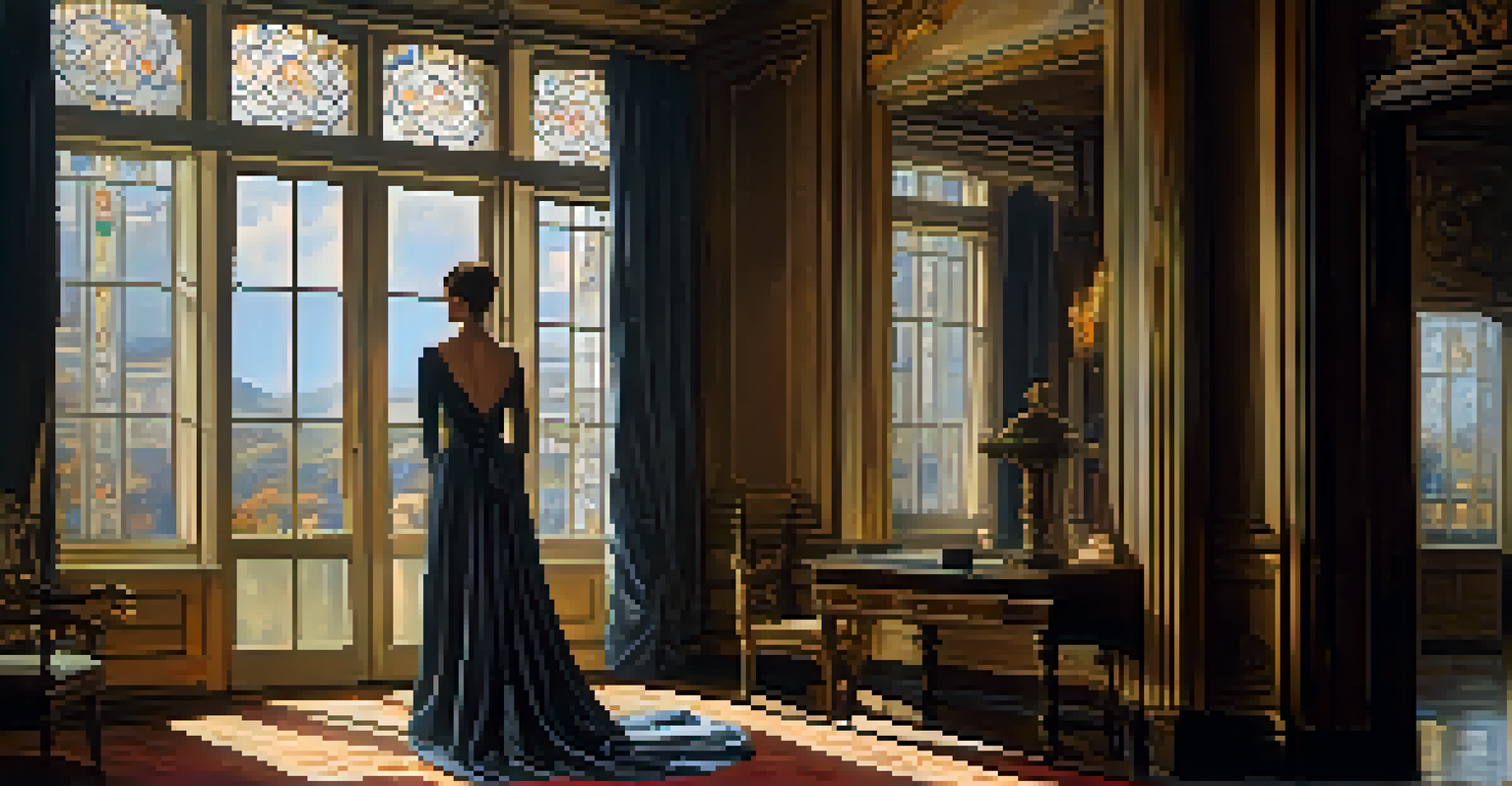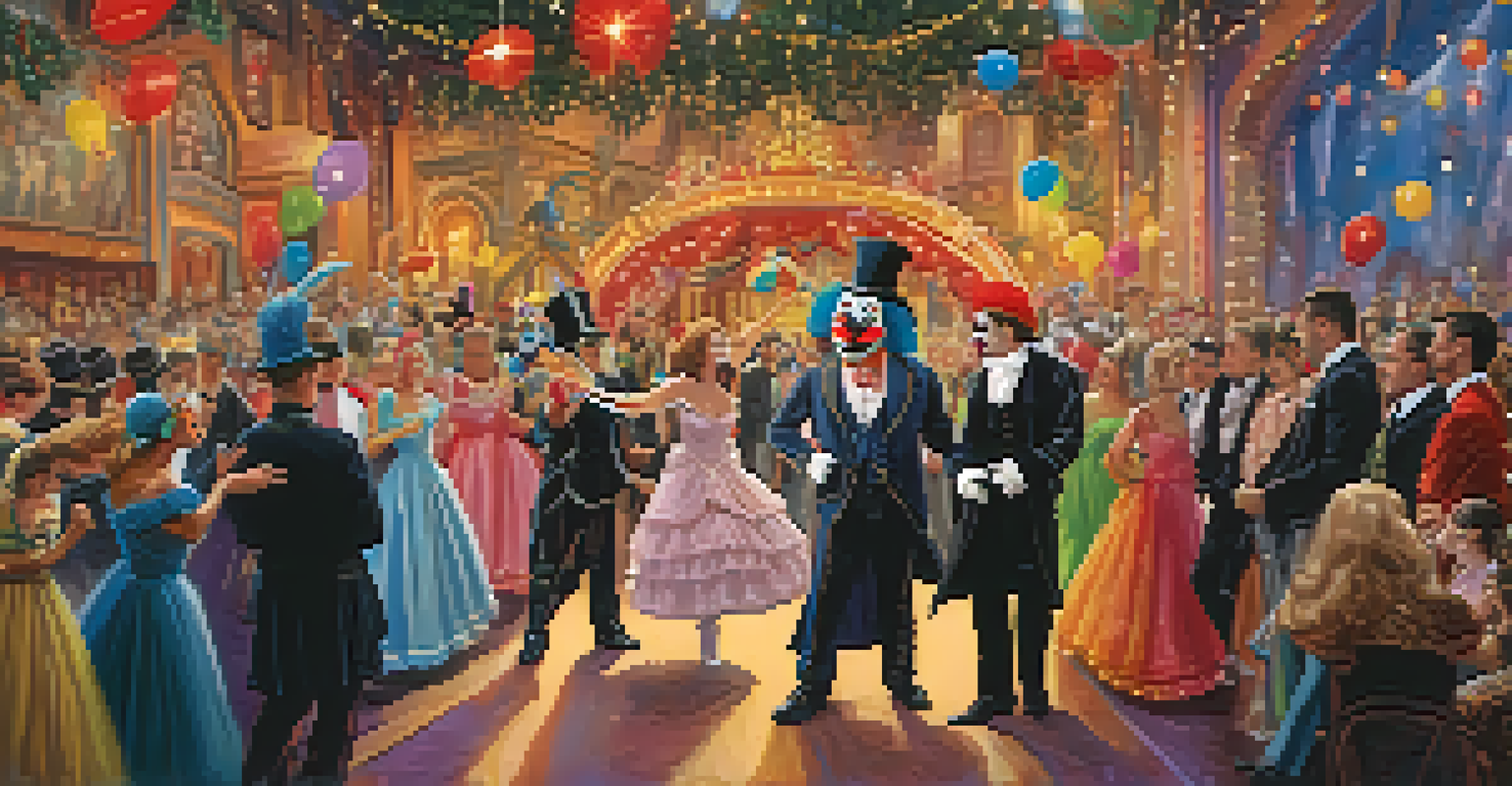How Shakespeare's Works Continue to Inspire Modern Cinema

Timeless Themes: Love, Power, and Betrayal
Shakespeare's works delve deep into universal themes such as love, power, and betrayal. These themes resonate with audiences across different cultures and eras, making them incredibly relevant even today. For instance, the exploration of forbidden love in 'Romeo and Juliet' can be seen mirrored in countless modern romantic dramas.
All the world's a stage, and all the men and women merely players.
In films like 'The Notebook' or 'La La Land,' we see the same passionate yet tragic love story that Shakespeare crafted centuries ago. Similarly, the struggle for power depicted in 'Macbeth' is reflected in modern political thrillers, where ambition often leads to devastating consequences.
This timeless quality of Shakespeare's themes ensures that filmmakers can draw inspiration from his works to create relatable and engaging stories that resonate with contemporary audiences.
Complex Characters and Human Emotions
One of the hallmarks of Shakespeare's writing is his ability to craft complex characters that embody a range of human emotions. From the tortured soul of Hamlet to the ambitious Lady Macbeth, these characters offer rich material for modern filmmakers. They explore the intricacies of human behavior, making them relatable even in today's context.

Films like 'The Lion King' echo the struggles of Shakespearean characters, showcasing themes of identity and vengeance. Simba's journey mirrors Hamlet's, illustrating how Shakespeare's character archetypes continue to influence storytelling.
Timeless Themes in Modern Stories
Shakespeare's exploration of universal themes like love, power, and betrayal remains relevant, inspiring contemporary filmmakers.
By tapping into these complex characters, filmmakers can create multi-dimensional narratives that resonate emotionally with viewers, ensuring Shakespeare’s legacy endures in modern cinema.
Plot Devices: From Tragedy to Comedy
Shakespeare's mastery of various plot devices, from tragic twists to comedic misunderstandings, serves as a blueprint for many modern films. His ability to weave intricate plots that keep audiences guessing is something filmmakers have adopted and adapted over the years.
The play's the thing wherein I'll catch the conscience of the king.
Take, for example, the classic romantic comedy '10 Things I Hate About You,' which is a modern retelling of Shakespeare's 'The Taming of the Shrew.' The clever use of mistaken identities and misunderstandings in both works creates humor that feels fresh and engaging.
These plot devices ensure that Shakespeare's influence is felt across genres, from gripping dramas to light-hearted comedies, proving that good storytelling is timeless.
Adaptations: A Bridge Between Eras
Film adaptations of Shakespeare's plays bridge the gap between his era and the modern world. Movies like 'Romeo + Juliet' and 'Macbeth' reimagine these classic tales, presenting them in contemporary settings while preserving the original dialogue and themes.
These adaptations not only introduce Shakespeare to new generations but also demonstrate the versatility of his work. For instance, Baz Luhrmann's 'Romeo + Juliet' transforms the original play into a vibrant, fast-paced love story set in a modern city, making it accessible to younger audiences.
Complex Characters Inspire Filmmaking
The rich, complex characters created by Shakespeare continue to influence modern narratives, allowing filmmakers to craft relatable and emotional stories.
By reinterpreting Shakespeare's narratives, filmmakers keep his works alive and relevant, showcasing their adaptability to various cultural contexts.
The Role of Language and Dialogue in Film
Shakespeare's rich language and poetic dialogue have significantly influenced cinematic storytelling. The rhythm and cadence of his lines can be felt in modern screenwriting, where dialogue often aims for a lyrical quality to engage audiences emotionally.
Movies such as 'Dead Poets Society' pay homage to Shakespeare's eloquence by encouraging characters to embrace the power of words. The use of soliloquies in modern films often reflects the introspective nature of Shakespeare’s characters, allowing audiences a glimpse into their thoughts and feelings.
This focus on language not only enhances character development but also deepens the emotional impact of the story, revealing how Shakespeare's influence remains vital in the art of filmmaking.
Cultural References: Shakespeare in Pop Culture
Shakespeare's presence in pop culture is undeniable, with his works referenced in countless films, television shows, and even memes. This cultural saturation ensures that his stories and characters remain in the public consciousness, often providing a familiar touchstone for writers.
For example, films like 'She's the Man' take inspiration from 'Twelfth Night,' showcasing how Shakespeare's stories can be adapted into contemporary narratives filled with humor and relatable themes. These references often serve as a nod to literary heritage, delighting audiences who recognize the source material.
Shakespeare's Influence on Genres
Shakespeare's blending of genres and styles has inspired filmmakers to experiment with new narrative forms, ensuring his impact on cinema endures.
Such cultural references not only keep Shakespeare relevant but also spark interest in his original works, encouraging viewers to explore the plays behind the adaptations.
Shakespeare’s Impact on Genre and Style
Shakespeare's influence extends beyond themes and characters; it also shapes the very genres and styles of modern filmmaking. His blend of tragedy, comedy, and historical drama has inspired filmmakers to experiment with genre-bending narratives that resonate with diverse audiences.
Think of films like 'The Departed,' which melds elements of crime drama with Shakespearean themes of betrayal and revenge, echoing 'Othello' and 'Julius Caesar.' This genre fusion creates fresh storytelling opportunities, allowing filmmakers to connect with viewers on multiple levels.

By blending genres, modern cinema continues to reflect and adapt Shakespearean principles, showcasing the enduring nature of his influence.